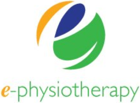Gastrioesophageal reflux disease (GERD or GORD) is a common condition, especially as people get older, where small amounts of the stomach contents move upwards into the oesophagus, causing a burning sensation due to the high acidity of the stomach contents. Many people do not get symptoms, only discovering they have GERD/GORD when they have tests done such as an endoscopy for other issues. There is an increased risk of oesophageal cancer if you have gastric reflux, so finding a way to manage or resolve it is important. The most common treatment is a medication called protein pump inhibitors (PPIs). This does not resolve the symptoms for all sufferers and long term use may cause other health issues. Surgical intervention is a last resort and may also not resolve GERD/GORD.
The lower esophageal sphincter (LES) should help to stop reflux but it alone is not enough to control reflux. The diaphragm’s central part, called the crural diaphragm, wraps around the LES in a figure eight shape. When it contracts it helps to reinforce the LES and further help to reduce reflux. This is a little known fact and rarely are breathing exercises used to help control GERD/GORD.
A number of studies have shown that doing breathing exercises, more specifically resisted inspiratory breathing exercises, can improve symptoms and reduce reflux. The protocols for improving diaphragm strength and hence reduce gastric reflux, vary but generally involve using a resistance device to make breathing in more difficult for a specified number of repetitions. As with all strengthening, it can take a more than a month to notice changes in strength and symptoms.
Physiotherapists are trained in breathing exercises as part of basic training and can help to ensure you do these exercises correctly to gain the maximum benefit.
ANother way to help reduce gastric reflux is to see a physiotherapist or osteopath who is trained in visceral manipulation. Visceral manipulation is a fascial release technique that is used on the internal organs of the abdomen. This can help gastroesophageal reflux by reducing fascial tension in the abdomen, including the stomach and the diaphragm. This can improve blood flow and allow for easier peristalsis (the rhythmic contraction of the smooth muscle surrounding your oesophagus, stomach, and large and small intestine) to improve digestive efficiency. If you have a hiatus hernia, where your stomach partly moves up into the chest through the diaphragm, visceral manipulation can help to reduce this hernia, reducing reflux associated with this.
Please book in for an assessment and treatment with visceral manipulation and breathing exercises if you have a hiatus hernia or gastric reflux.
References
Bordoni, Marelli, Morahito, Sacconi, Caiazzo and Castagna 2018. Low back pain and gastroesophageal reflux in pateints with COPD: the disease in the breath. International Journal of Chronic Obstructive Pulmonary Disease 13:325-334.
Casale, Sabatino, Moffa, Capliano, Luccarelli, Vitali, Ribolsi, Cicala and Salvinelli 2016. Breathing training on lower esophageal sphincter as a complementary treatment of gastrooesophageal refulx disease (GERD): a systematic review. European Review for Medical and Pharmacological Sciances 20: 4547-4552.


